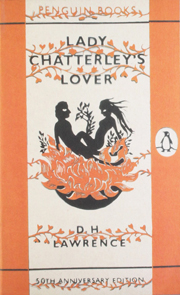 We have been concerned with matters of free speech and censorship a number of times over the last year or two. But Oxford Professor of Shakespeare Studies Emma Smith, writing in The Guardian, offers an interesting take in this problem. She points out that the threat or the act of censorship often creates a greater interest in the book which is being challenged. It is, she says ‘a pattern we see again and again’, even taking it so far as to argue that ‘The best sales pitch is the threat of censorship.’
We have been concerned with matters of free speech and censorship a number of times over the last year or two. But Oxford Professor of Shakespeare Studies Emma Smith, writing in The Guardian, offers an interesting take in this problem. She points out that the threat or the act of censorship often creates a greater interest in the book which is being challenged. It is, she says ‘a pattern we see again and again’, even taking it so far as to argue that ‘The best sales pitch is the threat of censorship.’
It’s an interesting idea, and Smith supports her thesis by citing the Lady Chatterley trial in 1960, suggesting that there might not have been a wide market for DH Lawrence’s book, but the public controversy of the trial itself ‘created an eager market’. Notoriety is in itself a selling point, while the disapproval and restriction by authorities is bound to create curiosity and provoke rebellion. I wonder if Salman Rushdie’s The Satanic Verses would have sold quite as well if it were not for the fatwa, though in that case I suspect Rushdie would have preferred life without constant threat.
Read Emma Smith’s article here.
 Similar concerns arose in an interview with Frieda Hughes, or ‘FRIEDAHUGHES-DAUGHTER-OF-TEDHUGHES-AND-SYLVIAPLATH’ as she once wrote of herself, pointing out the difficulty she has in escaping the baggage of being the child of perhaps the most famous literary union. As well as talking about her new book George, which recounts how she raised and formed a relationship with a young magpie, she inevitably discusses her parents. She manages Sylvia Plath’s estate and approaches the question, raised about Roald Dahl recently, of whether literary work should be revised to accommodate changing attitudes.
Similar concerns arose in an interview with Frieda Hughes, or ‘FRIEDAHUGHES-DAUGHTER-OF-TEDHUGHES-AND-SYLVIAPLATH’ as she once wrote of herself, pointing out the difficulty she has in escaping the baggage of being the child of perhaps the most famous literary union. As well as talking about her new book George, which recounts how she raised and formed a relationship with a young magpie, she inevitably discusses her parents. She manages Sylvia Plath’s estate and approaches the question, raised about Roald Dahl recently, of whether literary work should be revised to accommodate changing attitudes.
She has a direct and thoughtful view:
In my mother’s work, my attitude is very firmly: it was of an age. I think, in editing something out, how can the future learn what the past was, and what they did differently?
It’s a crucial consideration. Altering language may be a sensitive act for modern readers, but it is a falsification of what was written; it is in some ways a rewriting of history. It becomes more difficult to learn from the past if we constantly alter that past.
However, the more worrying trend, as Emma Smith points out, is not alteration, but the current urge towards ‘the withdrawing, wholesale, of volumes deemed problematic’. Bowdlerised books are better than banned books.